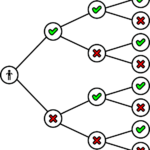In the rapidly evolving landscape of mobile technology, Progressive Web Apps (PWAs) have emerged as a game-changer. These PWAs bridge the gap between native mobile apps and traditional web applications, offering fast, reliable, and engaging experiences across all devices. With their ability to deliver instant loading times, offline functionality, and app-like interactions, PWAs are poised to revolutionize the way we interact with the web on our smartphones and tablets.
Understanding Progressive Web Apps:
At its core, a Progressive Web App is a web application that leverages modern web technologies to provide a native app-like experience to users. Unlike traditional web apps, PWAs are designed to work offline, load instantly, and offer features like push notifications and device hardware access, blurring the lines between web and mobile experiences.
Key Features of PWAs:
- Offline Functionality: PWAs utilize service workers to cache content and enable offline access, ensuring a seamless user experience even in low or no network connectivity.
- Fast Loading: With optimized performance and minimal loading times, PWAs deliver instant loading experiences, reducing bounce rates and improving user engagement.
- Responsive Design: PWAs are built with responsive design principles, adapting seamlessly to different screen sizes and orientations, providing a consistent experience across devices.
- App-Like Interactions: PWAs offer app-like interactions such as smooth animations, gestures, and navigation, enhancing user immersion and satisfaction.
- Push Notifications: PWAs can send push notifications to users, keeping them informed and engaged even when the app is not actively in use.
Advantages of PWAs:
- Cost-Effectiveness: PWAs eliminate the need for separate development and maintenance of native apps for multiple platforms, reducing development costs and overhead.
- Improved Discoverability: PWAs are discoverable through search engines, making it easier for users to find and access your app without the need for app store downloads.
- Enhanced User Engagement: With features like push notifications and offline access, PWAs drive higher user engagement and retention rates compared to traditional web apps.
- Faster Time-to-Market: PWAs can be developed and deployed faster than native apps, allowing businesses to bring their products and services to market more quickly.
Future Outlook and Adoption Trends:
As the mobile web continues to evolve, PWAs are expected to play a significant role in shaping the future of digital experiences. With major industry players like Google and Microsoft embracing PWAs and promoting their adoption, we can expect to see continued growth and innovation in this space.
Conclusion:
Progressive Web Apps represent a paradigm shift in mobile web development, offering a compelling alternative to traditional native apps and web applications. With their ability to deliver fast, reliable, and engaging experiences across all devices, PWAs are well-positioned to lead the way in the future of mobile web development. Embracing PWAs can unlock new opportunities for businesses to reach and engage their audiences, driving growth and success in the digital age.














